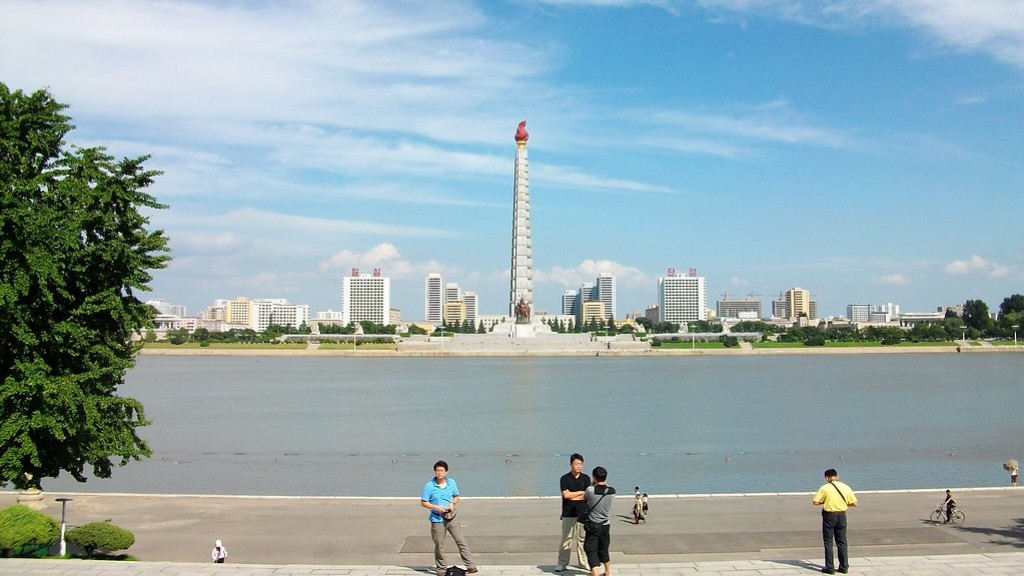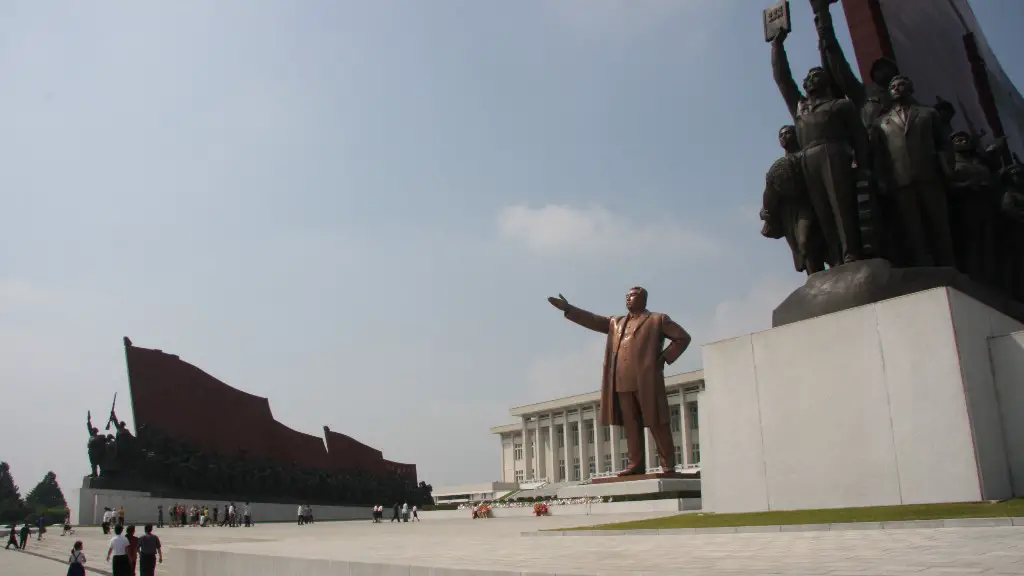Background Information
North Korea has been internationally isolated since 1948 due to its totalitarian regime and warlike stance. Over the years, its unexpected nuclear activities, development of long-range missiles, and other provocations have further worsened its relationships with the United States, South Korea, and other countries. In the face of a possible armed confrontation, the question arises: Can the US actually wipe out North Korea?
This question is rarely answered in the affirmative. This is especially true considering the relationship between the United States and South Korea, who are both bound together by a mutual defense treaty. Furthermore, US leadership is keenly aware of the risks posed by a direct military intervention.
Relevant Data
There are some important data points to consider when analyzing this question. First, North Korea has an estimated stockpile of up to 60 nuclear warheads. At the same time, its conventional army consists of around 1.2 million soldiers and more than 5,000 tanks. North Korea also maintains a network of underground bunkers and secret military bases that are difficult to detect and target.
In addition, North Korea’s development of long-range missiles has made a preventive strike on its nuclear facilities impossible as it would have devastating repercussions on the region’s security. Although the United States has extensive military capabilities, they are limited when it comes to eliminating North Korea’s nuclear capabilities.
Perspectives of Experts
Military action against North Korea is not a simple undertaking and is met with opposition from many parties. Even prominent military experts and veterans acknowledge the immense risks associated with any kind of intervention in North Korea. Retired US Navy Admiral James A. Winnefeld believes that a military operation against North Korea would be “very, very messy” and may result in tremendous casualties from both sides.
From a nuclear strategy perspective, a pre-emptive attack by the US could lead to a full-blown nuclear war where the consequences could be more devastating for the United States. Consequently, most experts suggest a comprehensive diplomatic approach with North Korea involving dialogue and full engagement.
Practical Obstacles
The practical obstacles posed by a military intervention are even greater. North Korea is surrounded by four countries with whom it is on hostile terms, so a direct attack is impossible. In addition, any form of offensive operations would require the approval of China and South Korea, which is unlikely considering their reservations about a US-led military action.
The most probable option therefore, is the use of economic sanctions, diplomacy, and embargoes. If implemented carefully, they can be effective in putting pressure on the North Korean regime while preventing the outbreak of an armed conflict.
Political and Economic Costs
In addition to the logistical and practical obstacles, a military intervention would also incur huge political and economic costs. Military operations are extremely expensive, and the US would need to allocate huge amounts of resources for a successful mission. Furthermore, North Korea is deeply integrated into the global economy, and an attack could cause the global economy to suffer if it results in a disruption of oil supply, currency devaluation, or a refugee crisis.
Moreover, a military action could also lead to a massive loss of life in North Korea, which would be a humanitarian disaster. Despite the possible benefits of eliminating North Korea’s nuclear capabilities, the cost of a military operation would be too great for the United States to bear.
Issues of Legitimacy
Even if it is feasible, a military intervention conducted by the United States would be perceived as illegitimate by the international community. Such an action would be viewed as the United States acting unilaterally and without international approval. This would further undermine the credibility of the United States and could even potentially lead to its expulsion from the United Nations Security Council.
In addition, North Korea’s allies, such as China and Russia, could use this as an excuse to escalate tensions in the region. Consequently, a US military action is seen as counterproductive and could potentially lead to an even greater crisis.
International Cooperation as a Replacement
Given the complexity of the situation, any attempt to eliminate North Korea must involve cooperation with international partners. This could involve countries such as China, Japan, South Korea, and Russia. Such a collaboration would need to be based on a comprehensive strategy with a focus on diplomacy, economic sanctions, and a possible military presence.
International collaboration is necessary for any major changes in the current environment. This would also be beneficial for the US in terms of legitimizing its position and minimizing the political, economic, and humanitarian costs associated with such an intervention.
Alternative Strategies
Apart from the direct military option, there are other ways in which the US can eliminate North Korea’s nuclear threat. One is for the US to strengthen its commitment to democracy and human rights in the region, which can serve as a form of containment to discourage North Korea from further developing its nuclear program.
The US can also leverage its alliances and partnerships with South Korea, Japan, and China to influence North Korea’s internal dynamics. Such an approach could focus on human rights and economic sanctions. Finally, the US could further develop its missile defense system to counter any potential long-range missiles fired by North Korea.
The Role of Education and Technology
Another effective means of eliminating North Korea’s nuclear arsenal is through education and technology. Education programs can help North Koreans to become more aware of the dangers of nuclear weapons, while technological solutions such as cyber-security and the monitoring of the North Korean nuclear program can help to contain its nuclear capabilities.
As with any issue related to North Korea, the US should focus on more than just the military option. Collaboration with international partners, a focus on democracy and human rights, as well as technological solutions, can all be effective ways of eliminating North Korea’s nuclear weapons.




